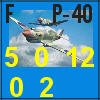The Sudanese regime's armed forces were created and trained by the Iranian Revolutionary Guards, and relations between Teheran and Khartoum are known to be close. Reports of transports of arms across land from Sudan to Gaza first appeared at the beginning of this year. Earlier reports suggest that the Israel Air Force bombed an arms convoy on its way to Sudan in March.
The 17 truck arms convoy bombed in March carried missiles that would have given the Hamas rulers of Gaza the ability to strike at Tel Aviv. The convoy was being supervised by Iranian Revolutionary Guards officers. Israel’s aim is to stop Hamas acquiring Iranian Fajr rockets, designed to be stripped down and carried in parts through the tunnels from Egypt into Gaza, from where their range of at least 40km would have given Hamas a longer reach than its homemade Qassam rockets or the Grad rockets it has already smuggled in and fired at Israel.
A few days ago, an Iranian ship was torpedoed as it prepared to dock in Sudan, where its cargo of arms was to be brought ashore and then transported by land across Sudan and Egypt to the Gaza Strip. This was reported in an Egyptian newspaper. The US nor Israel have commented on the attack. In February, Cypriot authorities halted an Iranian arms ship en route to Syria, upon request of the US and Israel. The ship was sailing from Iran to the Syrian port of Latakia, and after a search turned up ammunition for T-72 tanks, used by the Syrian army, as well as various types of mortar shells.
For years Tehran has been building up its military ties with Khartoum with an eye on its geopolitical assets: a long coast on the Red Sea, a main sea lanes to the Persian Gulf, a Muslim nation located opposite Saudi Arabia and next door to Egypt; Sudan’s command of oil resources and the White Nile, a major water source for an entire African region. This strategic jewel finally dropped into Iran’s lap.
Last month, Egyptian police arrested 25 suspects, 13 of whom have been charged with espionage and illegal possession of weapons and explosives. A manhunt is under way for 24 more suspects believed to be hiding in the Sinai peninsula's mountainous interior.
In an unusual admission, Hezbollah chief Sheikh Hassan Nasrallah acknowledged in a speech recently that one of the men in Egyptian custody had been sent to conduct reconnaissance inside Egypt.
Make no mistake about Iran, they cannot be trusted.
Wednesday, April 29, 2009
Subscribe to:
Post Comments (Atom)


No comments:
Post a Comment